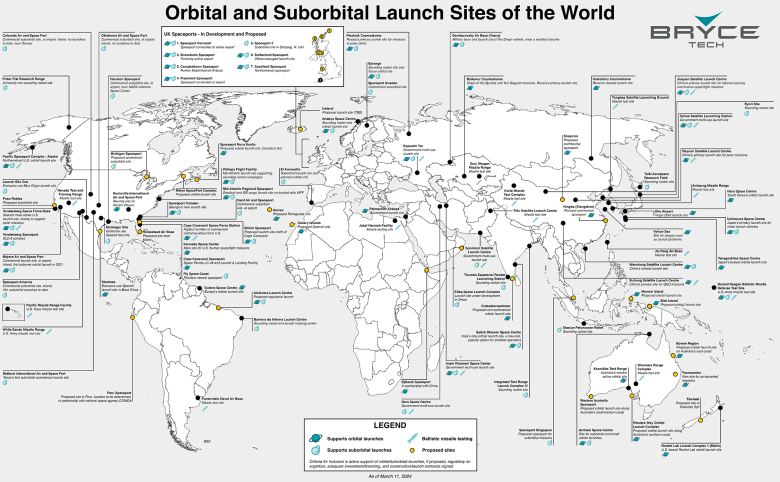TAMPA, Fla. — The Dominican Republic has kicked off a study into the feasibility of setting up a commercial spaceport near the equator.
Florida-based Launch on Demand, a launch licensing and technical services specialist, announced a contract May 22 to lead the six-month study from the National Intelligence Directorate (DNI), the Dominican Republic’s recently reorganized national security body.
Burton Catledge, Launch on Demand’s CEO, said the study will focus on the Oviedo area to the south of the island nation and include flight corridor analysis, climatology assessment, physical security evaluation, airspace/maritime impacts, and frequency deconfliction.
“Like many other countries, the Dominican Republic views access to space from its sovereign territory as a national security imperative,” Catledge said.
The study will examine vertical lift capacity for orbital and suborbital missions, which he said would enable the country improve critical satellite monitoring and surveillance capabilities to address illegal migration, drug trafficking and environmental damage.
“The agreement with the DNI focuses on near-term national security concerns but intends to rapidly expand to support the commercial space industry in Latin America,” Catledge told SpaceNews via email.
“Cape Canaveral and Kennedy Space Center are running out of capacity and launch companies are looking for a cost-effective and safe location that provides near-equatorial access to space.”
Before founding Launch on Demand in 2018, Catledge was operations group commander for the Air Force’s 45th Space Wing, which operates Cape Canaveral Air Force Station and the Eastern Range.
In addition to raising the profile of a country and avoiding dependence on other nations, BryceTech analyst Phil Smith said domestic spaceports can help insulate orbital, suborbital and missile testing missions from prying eyes.
A spaceport can also be part of broader partnerships with other countries alongside a broader strategy, Smith added, pointing to Peru strengthening ties with the United States to counter Chinese encroachment.

Spaceports provide an important focal point for driving policy and regulatory activity to support an emerging space industry — or attract it from elsewhere, with benefits for aviation, drones and other adjacent sectors.
Spaceports typically house research and development, higher education and testing centers in addition to launchpads, Smith noted.
“Also notable is the desire to strategically broaden industrial capabilities in anticipation of dropping demand for existing capabilities,” he continued, seen in the Middle East where some countries are keen to reduce their economic exposure to fossil fuels.
Spaceports can also help repurpose abandoned or latent assets, such as an old air base or missile test site.
According to Bryce’s latest figures, there are 31 other proposed spaceports worldwide, and around 56 sites capable of suborbital and/or orbital missions.
Catledge said Launch On Demand is currently conducting similar feasibility studies for three other customers: Two who are looking into setting up a spaceport in Arizona and another customer with plans outside the United States.
- SEO Powered Content & PR Distribution. Get Amplified Today.
- PlatoData.Network Vertical Generative Ai. Empower Yourself. Access Here.
- PlatoAiStream. Web3 Intelligence. Knowledge Amplified. Access Here.
- PlatoESG. Carbon, CleanTech, Energy, Environment, Solar, Waste Management. Access Here.
- PlatoHealth. Biotech and Clinical Trials Intelligence. Access Here.
- Source: https://spacenews.com/dominican-republic-considering-its-own-commercial-spaceport/



